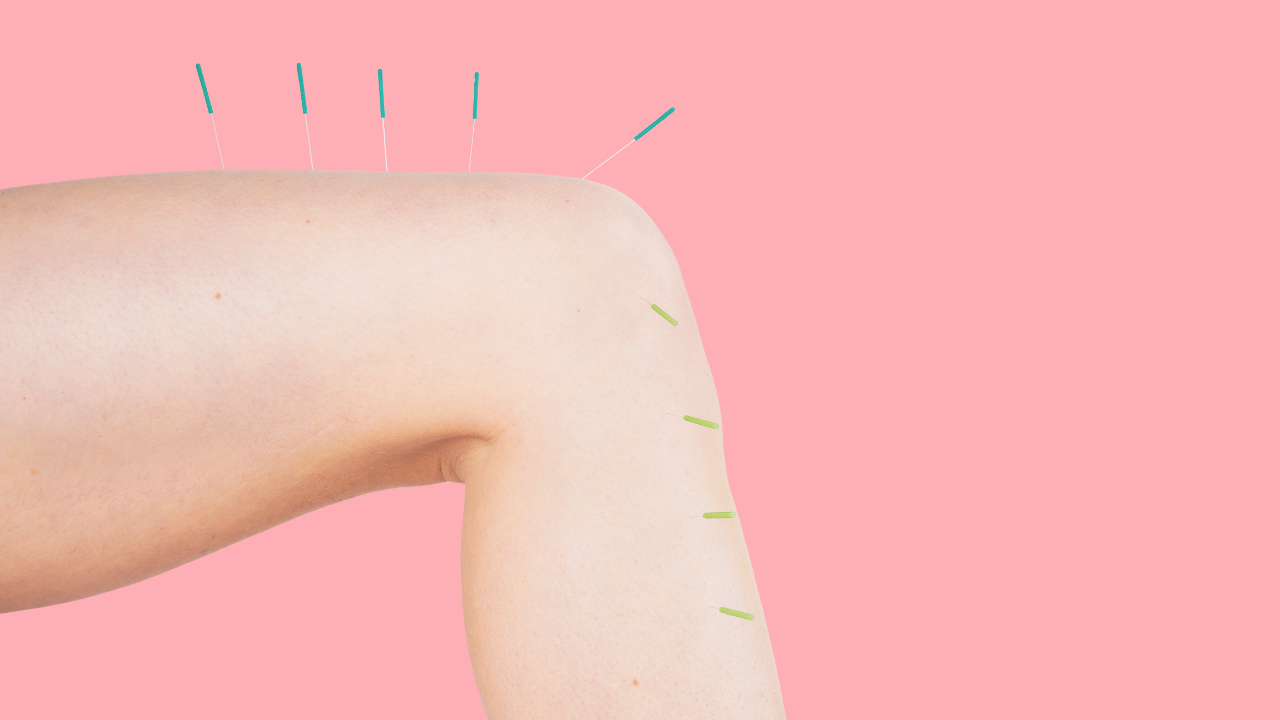How Acupuncture Can Help Chronic Pain and Injury
Feb 03, 2022

Chronic pain conditions are often “invisible illnesses” that can impact quality of life, relationships, work, and mental health. Living with chronic pain is difficult - it can paint a dark cloud over most days. We know that it is frustrating, but you are not alone. We tend toward acupuncture when addressing pain and injury, and for good reason! There is a lot of great evidence-based research supporting the effects of acupuncture on pain, whether chronic or acute. Our Doctor of Traditional Chinese Medicine, Jenna Noble, is going to chat all things acupuncture! Let's dive in to how acupuncture could help you on your health journey with pain.
What is Chronic Pain?
Chronic means that the pain persists in the long term - months to years.
Some of the common chronic pain conditions that are treated effectively with acupuncture include
- migraine
- fibromyalgia
- arthritis
- pain due to old injuries
- pain due to repetitive stress (ie tech neck, tendonitis, tennis elbow, shoulder pain, sciatica, back pain, to name a few)
- painful periods
- digestive issues that cause pain such as IBS
Acupuncture in Research
For over 60 years, research has been looking into why acupuncture is so effective for treating pain. Acupuncture has been shown to activate a number of the body's own natural pain-killing substances, as well as improving the brain's sensitivity to these substances!
It is also shown to release or regulate a number of other biochemicals involved in pain reduction, such as ATP, adenosine, GABA, and substance P.
How Does Acupuncture Alleviate Pain?
It actually works to reduce pain by multiple ways! From a Traditional Chinese Medicine perspective, we say “where there is blockage, there is pain.” By opening up blood circulation and lymphatic flow, we work to stop pain and restore function!
- Promotes blood flow. This is significant because everything the body needs to heal is in the blood, including oxygen, nutrients we absorb from food, immune substances, hormones, analgesics (natural painkillers) and anti-inflammatory molecules. Restoring proper blood flow is vital to promoting and maintaining health!
- Reduces stress. This is perhaps the most important systemic effects of acupuncture. Recent research suggests that acupuncture stimulates the release of oxytocin, a hormone that regulates the parasympathetic nervous system. You’ve probably heard of the “fight-or-flight” response that is governed by the sympathetic nervous system. The parasympathetic nervous system has been called the “rest-and-digest” or “calm-and-connect” system, and in many ways is the opposite of the sympathetic system. Recent research has implicated impaired parasympathetic function in a wide range of autoimmune diseases, including arthritis, lupus, rheumatoid arthritis and inflammatory bowel disease.
- Stimulates the release of our natural painkillers. Inserting a needle sends a signal through the nervous system to the brain, where chemicals such as endorphins, norepinephrine and enkephalin are released. Some of these substances are 10-200 times more potent than morphine!
- Acupuncture reduces both the intensity and perception of chronic pain. It does this through a process called “descending control normalization”, which involves regulating our serotonin levels. In chronic pain, there is such a thing as too much serotonin because it can make pain worse - acupuncture helps lower levels to decrease pain sensation.
- Relaxes shortened muscles. By relaxing muscles that are shortened (very tight) we release pressure on joints and nerves, and promote blood flow.
- Stimulates the body’s built-in healing mechanisms. Acupuncture creates “micro traumas” that stimulate the body’s ability to heal injuries to the tissue through nervous, immune and endocrine system activation. As the body heals the micro traumas induced by acupuncture, it also heals any surrounding tissue damage left over from old injuries.
"In the context of ineffective and sometimes dangerous pharmaceutical options for pain, acupuncture represents a safe and effective alternative with a long track-record of successful use."
What Does Acupuncture at EASTND Look Like?
Treatment for chronic pain conditions includes a complete TCM-based health assessment, followed by a discussion about treatment options and your treatment plan.
If it’s your first time trying acupuncture, we will walk you through what to expect, the sensations you might feel during and after your treatment, and how to care for yourself post-treatment.
Diet and lifestyle can come into play when we want to make a bigger impact or see faster results in certain cases. Soft tissue work such as acupressure and cupping may be offered if indicated for your treatment plan. Stress reduction and mental health will often factor in to our treatment plan. Acupuncture has been shown to increase the body’s own natural endorphins aka our “feel-good” chemicals!
Acupuncture also supports better sleep, which can be instrumental in giving the body the time and rest necessary to heal. One of our favourite “side effects” of acupuncture is a good night’s sleep!
TIP: Have a small snack before coming in, or to eat a meal an hour or so prior. Hydrate well before but especially after your treatment. Plan to rest after treatment as much as you can.
We hope this was helpful and informative for you - if you're experiencing chronic pain we are here for you!
Stay connected with news and updates!
Join our mailing list to receive the latest news and updates from our team. You'r information will not be shared.

